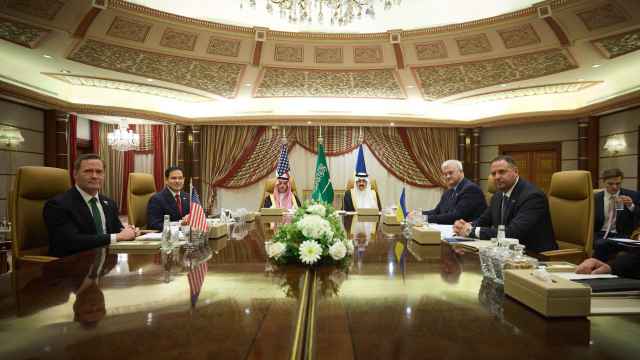A study released Wednesday of people's printing habits in the office, conducted by the All-Russia Public Opinion Research Center, or VTsIOM, demonstrated that document printing was on the increase in Russia.
Among 500 respondents surveyed, over 60 percent said they printed between 11 and 50 pages every workday. Forty two percent said they printed more documents in the last twelve months compared to the year before, said Pavel Mtiulishvili, a VTsIOM spokesman.
The results show that, despite an increase in content digitization and the introduction of digital signatures, company procedures and official paperwork requirements are causing more documents to be printed for signing and archiving.
For example, the digital signature law that was added to the Labor Code earlier this month, allows employment contracts to be signed in digital form, but still requires the employer to print out the final copy and send it to the employee by snail mail.
Apart from printing documents for legal reasons, 58 percent of people surveyed said they printed a document just because they needed to read it or discuss its contents with their manager.
Igor Pasukov, business development manager for printing products at Hewlett-Packard, which sponsored the VTsIOM research, said the increase in printed pages was caused by the overall increase in the volume of digital content available on the Internet.
He said that in the past, people spent hours looking for an article in the library. Now, they find what they need online and print it out for future reference.
The results of the survey showed that 84 percent of people were concerned with the high cost of printing. An HP spokesman said the company was concerned about this, and had doubled the capacity of certain printer cartridges sold in Russia without increasing their price.
While the results of this survey painted a positive picture for printer vendors in Russia, globally the printing market is on the decline. Xerox said it had decided to move away from the paper printing business, as more customers access their documents on computers, and would focus more on services, Reuters reported Wednesday.
No margin of error for the VTsIOM survey was given.
Contact the author at g.moukine@imedia.ru
A Message from The Moscow Times:
Dear readers,
We are facing unprecedented challenges. Russia's Prosecutor General's Office has designated The Moscow Times as an "undesirable" organization, criminalizing our work and putting our staff at risk of prosecution. This follows our earlier unjust labeling as a "foreign agent."
These actions are direct attempts to silence independent journalism in Russia. The authorities claim our work "discredits the decisions of the Russian leadership." We see things differently: we strive to provide accurate, unbiased reporting on Russia.
We, the journalists of The Moscow Times, refuse to be silenced. But to continue our work, we need your help.
Your support, no matter how small, makes a world of difference. If you can, please support us monthly starting from just $2. It's quick to set up, and every contribution makes a significant impact.
By supporting The Moscow Times, you're defending open, independent journalism in the face of repression. Thank you for standing with us.
Remind me later.





